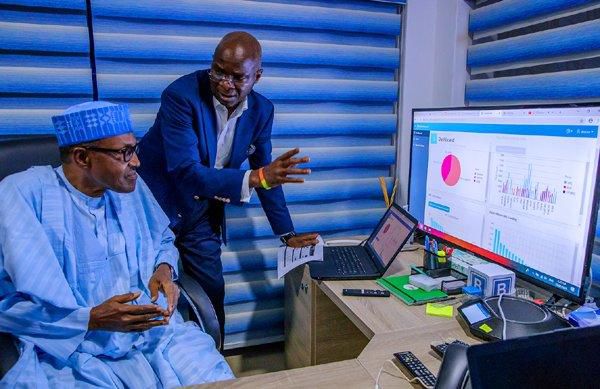Darkness descends on Nigeria as power grid collapses again
)
Nigeria’s perennially fragile electric power grid has collapsed again, subsuming an entire nation in swathes of darkness, crippling business activities and sending millions to gas stations to purchase petrol for noisy generators.
According to the Transmission Company of Nigeria (TCN) the power grid experienced a system collapse on Wednesday, May 8, 2019. This reduced load allocations to the distribution companies (DisCos).
At about 5:29am on Thursday, May 9, 2019, the grid collapsed again, compounding the nation’s energy woes.
![The Transmission Company of Nigeria (TCN) said it has restored Power supply to its Apo substation after the fire incident on Sunday [Dailytrust]](https://image.api.sportal365.com/process/smp-images-production/pulse.ng/25072024/92ee78cf-431c-4dbc-8a75-1250ae54de38)
Bode Fadipe, spokesperson of the Abuja Electricity Distribution Company (AEDC), said on Wednesday that load allocation to the DisCos had been reduced drastically.
“Allocation to AEDC has improved. We now have 70MW hence we are able to pick the following feeders H23, H35, H7 and H11 from AT3, FDR 2 and FDR 3 from AT5, DAM FDR from AT4, L36 and L31 from Kukwaba Ts.
“We are instructed to maintain station service in most of our injection substations. We shall continue to brief the public as the system continues to improve and stabilize.”
However, on Thursday, Fadipe told journalists that the power situation had gone from bad to worse.
“Another system collapse occurred this morning. 5:29am precisely. AEDC is currently on zero allocation,” Fadipe stated.
Frequent system collapses
This is the sixth time Nigeria’s power grid has collapsed in 2019.
In January, the country’s power grid collapsed twice.
In April, at least two major collapses were recorded.
In recent times, power supply across the country has gone from bad to worse, with the meager 4,212 megawatts peak recorded in April plummeting to a little above 2,000 megawatts, amid reports of damaged gas pipelines and comatose power stations.

Power Minister, Babatunde Raji Fashola, often tells Nigerians that since the power sector has been privatized, there is very little the government can do to fix the sector.
President Muhammadu Buhari rode to power in 2015 partly on the back of a promise to improve power supply to homes and businesses.
But outages and erratic supply of power remain recurring themes across Africa's most populous nation.
![Aisha blows hot on Security forces; Y7ou won't believe what she said [VIDEO]](https://image.api.sportal365.com/process/smp-images-production/pulse.ng/17082024/1f976edf-1ee2-4644-8ba1-7b52359e1a8f?operations=autocrop(640:427))
)
)
)
![Lagos state Governor, Babajide Sanwo-Olu visited the Infectious Disease Hospital in Yaba where the Coronavirus index patient is being managed. [Twitter/@jidesanwoolu]](https://image.api.sportal365.com/process/smp-images-production/pulse.ng/16082024/377b73a6-190e-4c77-b687-ca4cb1ee7489?operations=autocrop(236:157))
)
)
)
)
)
)
)
)
)
)
)